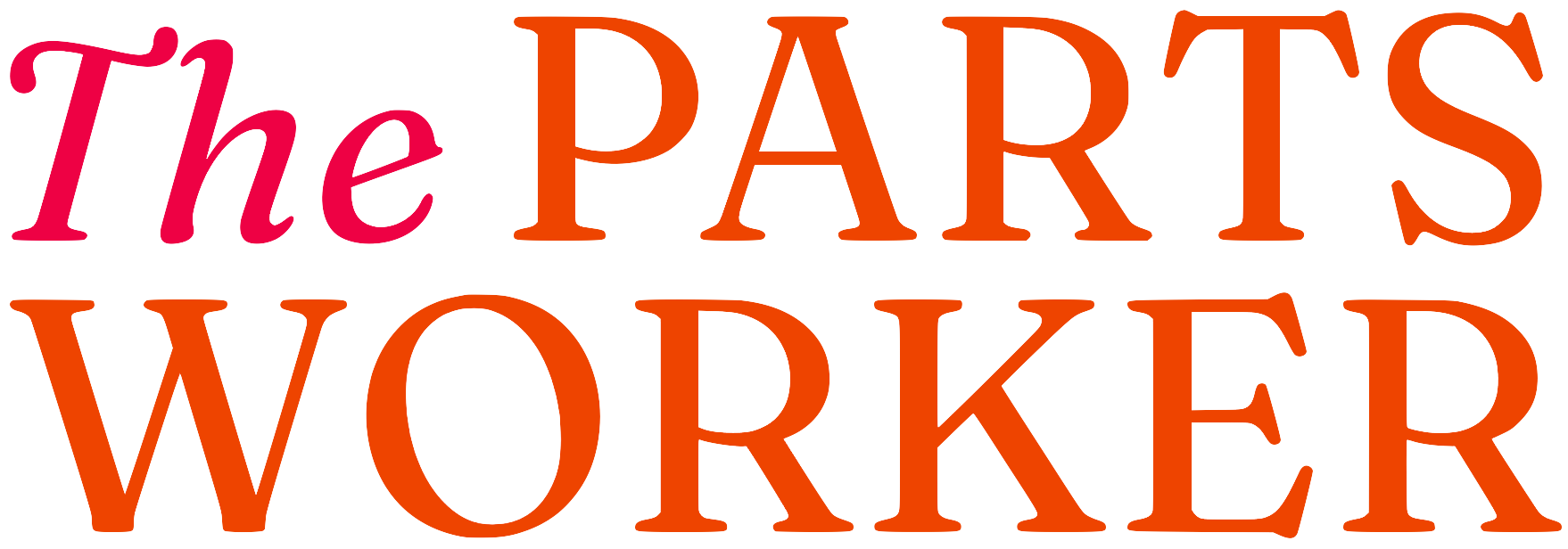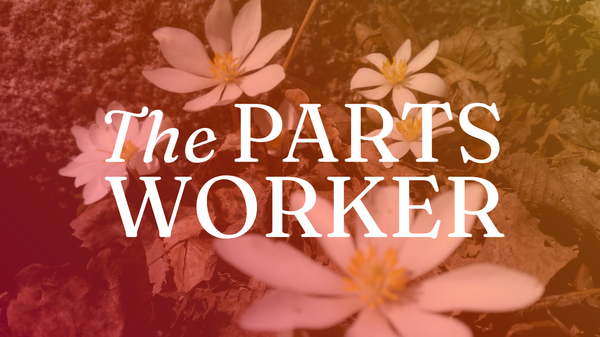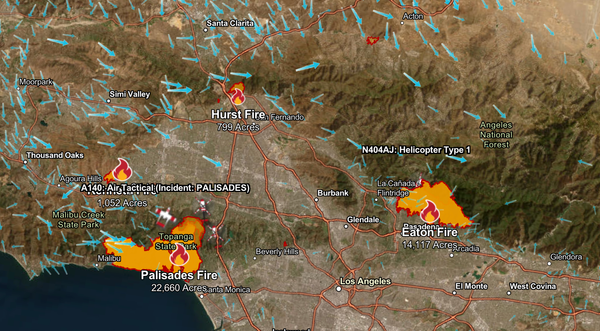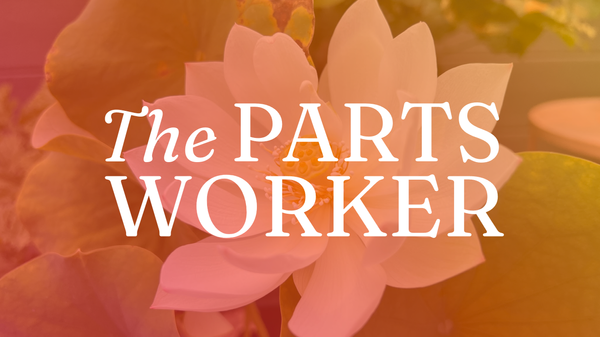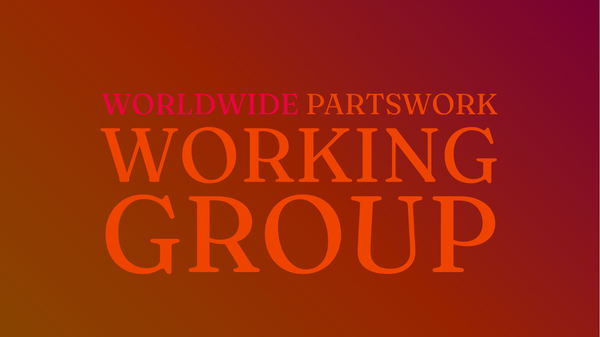Partswork working group: Updates, winding down, + 2 invitations for you
Ash and Risa here, writing from the wintry northern hemisphere to our partswork friends around the world. We come to share what we’ve been doing, to bring this working group to a gentle close, and to invite you into two different ways to share the healing power of partswork in year ahead.
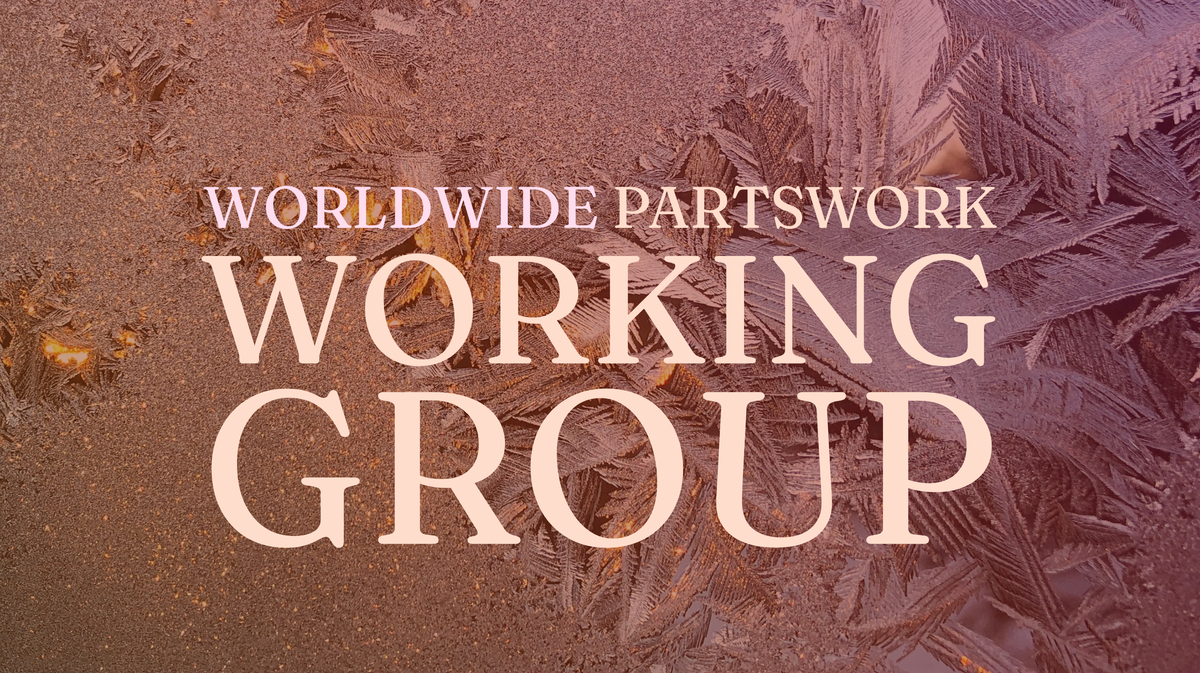
Greetings everyone! Here’s the news:
- What we’ve learned about “peer-to-peer” partswork
- Staus of other potential projects
- Invitations to work together in new ways
What we’ve learned about “peer-to-peer” partswork
We were excited about the idea of making the benefits of the Internal Family Systems model radically more accessible through peer-to-peer partswork, and we imagined our working group might contribute by creating open-source infrastructure to support them.
To that end, this fall Risa and Ash interviewed nine people who have created (or are creating) IFS-based groups designed for people who don’t have formal training.
What we learned
⚠️ Skillful facilitators are absolutely necessary. This was the clearest message we heard from the folks we talked to: purely “peer-to-peer” partswork on the model of 12-step groups — in which any participant can facilitate, just by following a simple script — is ineffective at best and harmful at worst. More on this point:
- As Bill Tierney explained, he began his free partswork practice group thinking “that we could create a group where people could come in and practice with each other. Nope! We’d need to have a trained facilitator in every breakout room.”
- Shawn Gregory and Jenna Knapp of IFS Liberation Collective agreed: training people to do their own partswork is one thing, they said, but “it does not work to have people go on to lead circles — the skillset needed is different.”
- Brandon Laird of IFS Peers reported something very similar: “We haven’t been able to grow,” he told us, because there aren’t enough people involved who are interested in developing the skill it takes to facilitate.
➕ IFS works better in groups when combined with community healing practices. Because it was developed in the context of one-on-one clinical psychology in the global north, the IFS model isn’t easy to implement in open groups with minimal hierarchy. All the people we talked to use IFS their groups in combination with practices for healing in community: 12-step recovery, Mindful Self-Compassion, Non-Violent Communication, Authentic Relating, and many more.
❤️🔥 With skillful facilitation and associated healing methods, group partswork is powerful. Everyone we talked to bore eloquent witness to the power of IFS in groups of people who want to heal together. Brandon said it well: “Once you get a bunch of people in a space, the Self energy of the group can do way more than a therapist can. … The group gives us power.”
🤔 The need: Training curriculum for partswork group facilitators. Almost all the folks we talked to identified a need for a simple, accessible training curriculum to equip folks with no formal IFS training to facilitate partswork groups skillfully, and some are already working on their own versions of such a curriculum. We see that need, too — and we think the folks who are already doing this work have the expertise it will take to create it.
Risa’s next step: An in-person IFS group in her neighborhood
For Risa, the appeal of group partswork is local and in person — and that’s where she wants to direct her efforts now. As luck would have it, she’s met a number of people in her Ontario neighborhood who are very interested in the idea of using IFS principles to come together in a healing way. In the year ahead, she’s going to experiment with making that happen. If you would like to set up a similar local IFS group, email Risa to collaborate!
Free IFS groups that are meeting now
- For practical IFS fundamentals: Bill Tierny, an IFS coach, facilitates free, open partswork practice groups on Wednesdays and Sundays for anyone who wants to learn about the model from scratch.
- For folks with addictions: PATH offers free, IFS-based online support meetings for “people all over the world struggling with addiction and its underlying trauma.” The meetings are facilitated by IFS-trained or IFS-informed volunteers, including our interviewee Achara Tarfa.
- For a 12-Step-inspired approach: IFS Peers, which evolved out of PATH, offers free “regular, confidential online support meetings for anyone healing from trauma/addiction.” Our interviewee Brandon Laird facilitates most meetings, along with some trusted colleagues. Their 10 Statements show how they are adapting 12-Step ideas to partswork.
Other group partswork resources
- Peacebuilding and direct action: Members of the IFS Liberation Collective, organized by Shawn Gregory, Jenna Knapp, and Ethan Hughes, are using what they’ve learned from building a peacebuilding community in El Salvador to use IFS principles to train other peacebuilders around the world.
- Fostering group dynamics: Sabrina Santa-Clara and Kevin Fitzpatrick combine IFS and Authentic Relating to foster cohesion and safety in groups who are doing therapeutic or psychedelic work together.
- Handbook for self-supporting circles: Karl Steyaert, who uses IFS and other modalities to coach groups, is writing a handbook to create self-supporting circles using IFS and Non-Violent Communication.
Status of the other projects we talked about
Our September call generated ideas for three other projects to make safe and effective partswork more accessible around the world. Here’s where they stand now:
- Trust-based global community. The idea for building a trust-based online community of IFS practitioners and other partsworkers was broadly appealing to us, but it’s a heavy technical and lift. Nobody has stepped forward to take the project on, so it remains at the stage of a good idea.
- Standards for partswork training programs. We were excited by the idea of creating a “baseline IFS model” that establishes the minimum standards IFS or partswork training programs need to meet. To that end, Ash compiled Siobhan’s research into some training programs in this table. Alas, we can’t commit to expanding or maintaining this resource over time.
- Voluntary ethics code for practitioners. Presley Pizzo talked with Ash about her ethics code, which inspired Ash to flesh out their own. The next step here would be to draft and collaboratively revise a prototype ethics code that other practitioners could use, but that hasn’t happened yet.
What’s next: Winding down this working group, collaborating in new ways
We loved meeting many of you in September, and we love even more the idea that dozens of people around the world share our commitment to making the benefits of partswork as accessible as possible to our fellow human beings. But we don’t see a need to continue this working group without a clear shared mission. Now that the Partswork Directory is up and running, we decided collectively not to stand up a competing resource; and the other projects we identified haven’t built momentum beyond a handful of us.
So, with gratitude and love, we will make this the last email we send to this particular group.
But that’s hardly the end of our efforts! Risa and Ash would love to invite you to join us in shared endeavors:
- Develop local, in-person IFS communities. If you’re interested in starting a group in your community that uses partswork principles to bring people together in healing way, as Risa is doing in her neighborhood, she would love to collaborate — just send her an email.
- Share your most interesting ideas in The Partsworker. Ash wants to invite you all to share your most interesting thinking about human multiplicity in the email newsletter that arose out of this working group, The Partsworker. If you have a practice to share, a meeting or event to report on, a controversial idea to float, a provocation to offer — Ash wants to know! Click here to pitch an idea for an upcoming newsletter.
With that, friends, all our best to you and every part of you for a healing and liberating year ahead!
In solidarity,
